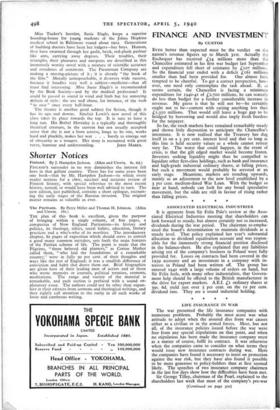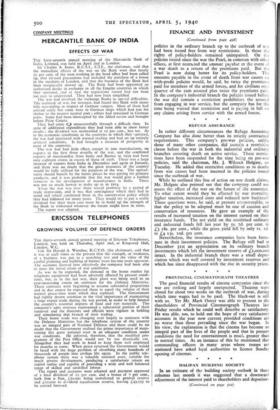LIFE INSURANCE IN WAR
The war presented the life insurance companies with numerous problems. Probably the most acute was what attitude to adopt when the assured dies from war causes either as a civilian or in the armed forces. Most, but not all, of the insurance policies issued before the war were free from any special stipulations on that point, and when no stipulation has been made the insurance company must as a matter of course, fulfil its contract. It was otherwise when the companies came to consider on what terms they would issue new insurance contracts during war. Here the companies have found it necessary to insist on protection against the war risk, but they have also found it possible to be more generous to policy-holders than at first seemed likely. The speeches of two insurance company chairmen in the last few days show how the difficulties have been met.
Sir George Tilley, chairman of the Pearl, explained to the shareholders last week that most of the company's pre-war (Continued on page Soo) FINANCE AND INVESTMENT (Continued from page 498) policies in the ordinary branch up to the outbreak of war had been issued free from war restrictions. In those the rights of policy-holders remained unimpaired. On the policies issued since the war the Pearl, in common with other offices, at first restricted the amount payabie m the event (If a war death to a return of the premiums paid. But the Pearl is now doing better for its policy-holders. The amounts payable in the event of death from war causes on with-profit policies would, he said, be twice the premiums paid for members of the armed forces, and for civilians one- quarter of the sum assured plus twice the premiums paid. hi the company's industrial branch the policies issued before the war did contain a restriction prohibiting the assured from engaging in war service, but the company has for the time being waived that restriction and is paying in full on any claims arising from service with the armed forces.
* *















































 Previous page
Previous page